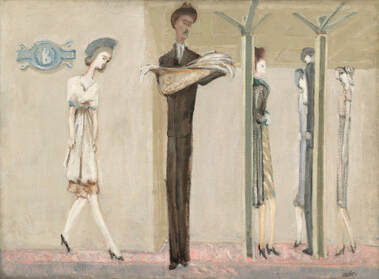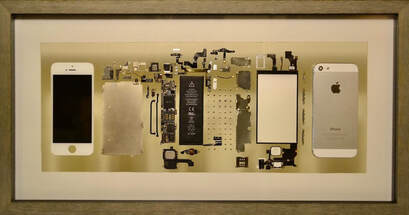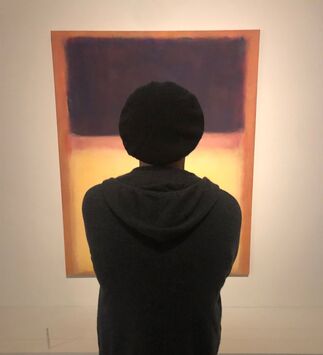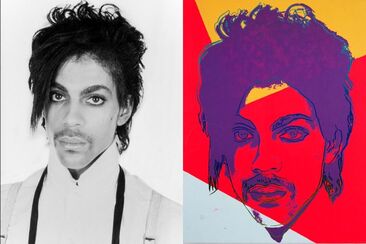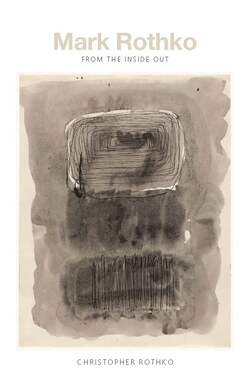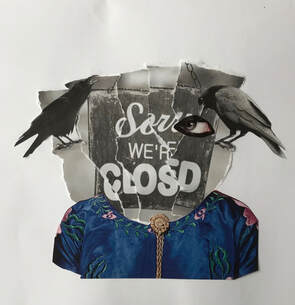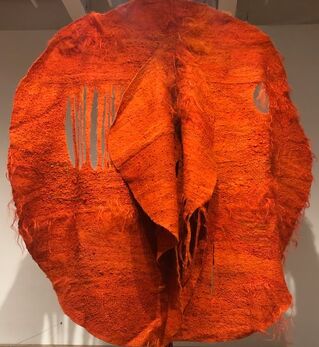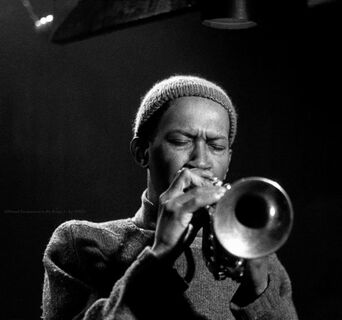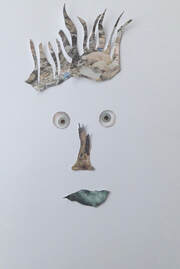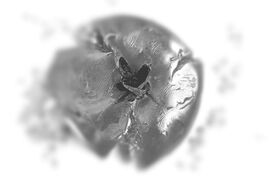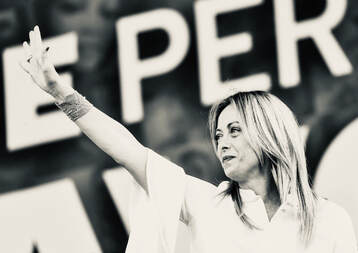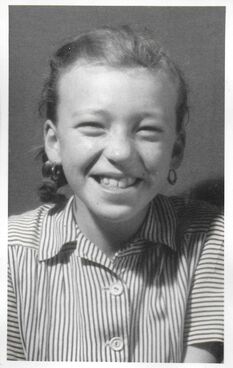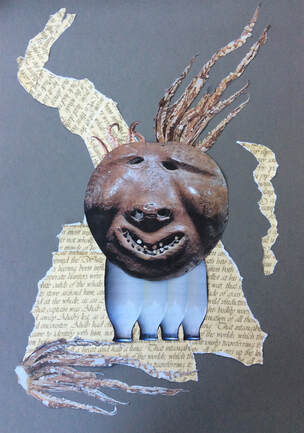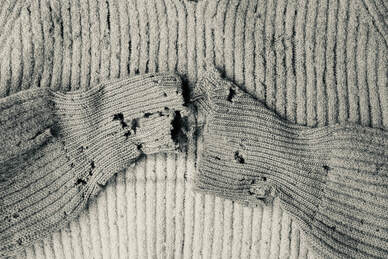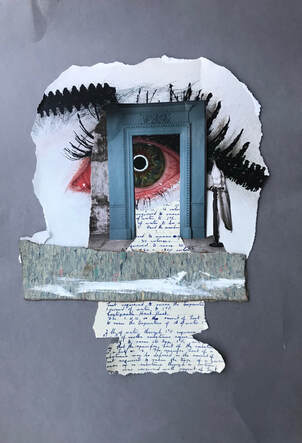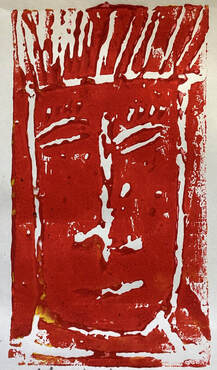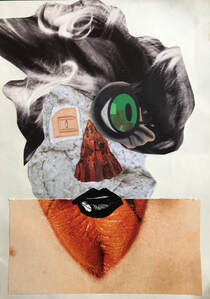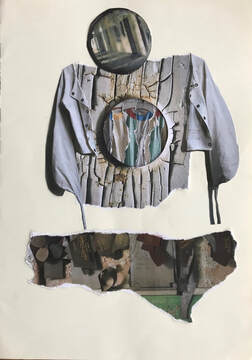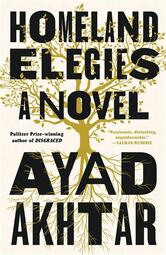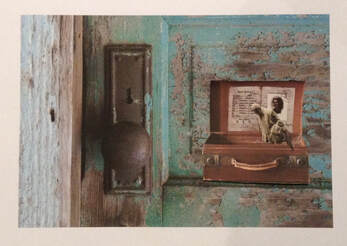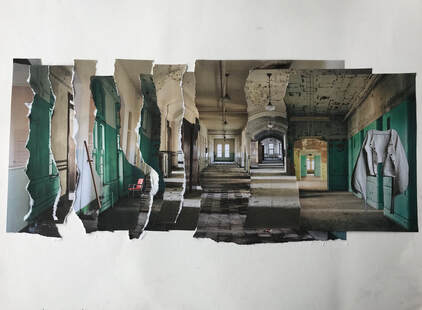|
Bob fleight in den himmel (2023) Georg Baselitz Last Friday, I stood with a friend marvelling at an eighty five year old man’s achievement. His walking frame had scored vital lines into layers of paint. His size forty six shoe was stamped onto a huge canvas which portrayed him and his wife, Elke, upside down. Georg Baselitz is prolific, he is a brilliant painter and he is an old man. To borrow from the bard, sort of, who would have thought the old man had so much paint in him? He does. All of the works in A Confession of my Sins at the White Cube, Bermondsey, were created in 2023. Standing before these paintings, what strikes is the vigour, the energy of the strokes, the resonance of colour and composition, the thrill of life. Born into ‘a destroyed order, a destroyed landscape, a destroyed people, a destroyed society’, Baselitz has found meaning in making. And, it is a meaningful experience to spend time with these paintings. What does it all mean though? These paintings of upside down deer and birds, of people and stockings. What are they about? I don’t know. I don’t know and I don’t want to know. Meaning is for other things. Or is it? 'Ideas are not art '- Robert Adams Longmont, Colorado (1979) Robert Adams The tendency for contemporary artists, and indeed galleries with their labelling, to bind themselves to a socio-cultural position seems to suggest otherwise. So many times of late, I've tried to avoid the explanatory spiel positioning work in an ideology or offering a salve to the offence that may or may not be caused A worrying position if you believe art, in whatever form, is eviscerated when it seeks to be argument. Jed Perl’s, Authority and Freedom, a brief poking at the idea, is well worth a read if you are interested in such things. As is the elegant prose of American photographer, Robert Adams, in his two slim books, Art Can Help and Beauty in Photography. Where the prose takes him sometimes is a tad too conservative but there are some cracking lines trailing tantalising ideas. My time looking at paintings, reading and writing, going to the theatre and listening to music, is not a search for a subject and what is thought about it, but for a moment that stirs the soul. For wonder. For delight. For playing in the playground that throbs between me and the artwork. It is, more than anything, to feel alive. Is that an outmoded romanticising? Maybe. But who doesn’t want to feel more alive in an increasingly deadening world. The reductionist, I know a few, comes away from a painting telling you what it’s about. I’ve never seen a painting about anything. What matters is the how not the what; the exquisite and unique way that a work is made, not that some message will be revealed. Be it in the theatre or in the folds of a page, what holds you is the telling not what's told. I’m nowhere near as prolific as Baselitz yet I carry on making work. Today, I’m celebrating another year of a poem a day. I started on the 28th May 2022 and now have 732 daily poems. I’m not sure how much longer I’ll keep going, but for the last two years I’ve started the day with a cup of coffee and some scribbling. A playing. What they’re about who knows, but I’m sharing a few for a journeying through. I hope you can dance in the playground... Who's there? (2021) Rachel Clare X After reading Rachel Aviv on Lucy Letby His eyes follow her and an idea swells in his sighting of her skin she stands by newborn’s fragile breath her hands are delicate, hurt does not throb in tender fingertips but he replaces her with an x and bundles the certain blanket of statistics over her exhausted frame he rushes on a stream of theories beckoning others to follow him bundling strange obstacles out of his way tearing at the snags of uncertainty & tossing them into forgotten depths she is broken by the angel of death whose dark feathered wings flap on the solid gust of conviction her history is snapped into puzzle pieces pressed to a rough picture of shrivelled kindness coincidence is too cruel to be swallowed so mystery is choked, stance cloaked as the doors of hell are opened she sits at a table scrawling thoughts too fierce to bear, these will be straightened by the strong arm of the law to paper’s bold typeface her lonely shaking at the kitchen table unseen as everyone takes turns shaping a killer Monday 27th May '24 Poundland, Blackpool (2019) Johnny Durham Poundland Poundland has a problem & it’s not even ten o’clock early ransackers are caught in an anxious queue, feet shifting to a symphony of impatience heads swivelling in search of some release from low lit agony as the machines malfunction & only accept the disappearing currency, cash, half-heartedly signalled by the hand written sign sellotaped to the machines forehead I find a note & make a play for the front waving my tenner like some signal of surrender I listen to the loveless bleep as I scan my two pads & wrong sized batteries for a clock that has lost its face & energy indexing my way through images prefacing escape, I press the one still sporting the dead queen’s face her response is to tell me to enter my PIN, technology’s joke taken, I slide the ten pound note into the illuminated lips swallowed, nothing happens the screen is unmoved & knowing this is Poundland my prejudice sets itself to the panic of loss I look for some rescuing, for the return of fortune’s favour the queue’s exasperated eyes tell me to accept my loss & get the hell out of there before they launch an avalanche of biscuits & batteries at my obstructing head a woman in the dark blue of uniformity lumbers from till to my side It’s cash only she grumbles I want to tell her I stuck my finger in the queen’s face but I mumble It gobbled up my tenner. I pressed the cash sign her weary eyes won’t hide her irritation & disbelief but she has a half served stewing customer to return to her fingers dance over the screen & a five pound note is spat out for me to grab I push through the glass door breathe in September morning sun & see that my unlocked bike stands there still & perhaps today will hold some promise Thursday 21st September '23 Fly with Aerocene Pacha After Saraceno's film at the Serpentine Galery to levitate without any violence to the earth - Tomás Saraceno An army of white shirted men lift their heads to godly dreams reckless roaming beyond their allotted sphere, conquistadores countdown to a future that burns and rots, power thrums beneath the nylon rippling with Promethean muscle, lift off launching trail has licked our land dry, slakeless tongue blind vision, merciless heart, the future is theirs the forgotten walk on the white of the salt flats native crust from which they have lived, prospered, played billowing hope hangs in the black shapes lifting beyond their fragile grasp, water is life, salt is life, life is… it cannot be battery powered, love dwindles in lithium’s extraction Salinas Grandes, a salty battleground, people of the earth together standing against the sea of green greed they follow faith watching her human feet lift, black shoes swaying over pure land there is no fire here, nature’s bounty can carry us beneath Icarus’s reach, beauty holds in simple things, silent wonder Thursday 13th July '23 The Drunkards (1883) James Ensor A pint of bitter in Milton Keynes Behind the plate glass men sit with their eleven o’clock pints no eyes or heart for the world beyond stooped shoulders take their mouths to the next gulp, something to soothe the static crackle of disappointment one lifts his looking from lagered lethe and stares straight into my curious gaze an unexpected beam shone onto his suffering his solitude is scratched, doused anger dried the hurt still breathing from other days rises to a seething that he sends my way I hurry on, climbing Midsummer Boulevard my look driven downwards to avoid breaking the shell of another’s torment, a bitter spilling Friday 23rd February '24 What shall we do? After reading Andrew Scull's Desperate Remedies Madness wears many masks one crooked grin papered over dribbling lips gaping to swallow the black sadness of a shoulder shrugging world tender mercies sink beneath a stripped collarbone, raw cries electrocuted into bleeding ecstasy straitjacketed symphony to the schooled ears of the alienists lunacy lives in the moon, a white land where doctors cannot crawl so they stand tall on degenerate dogma wagging their tongues to the whip of new ideas, the clink of coin the quack’s rattle a soporific song to keep the distressed dependent on an angel’s soft delivery of cereal keep your bowels clean, crunch on the cornflakes, you will be saved Monday 1st January '24 Forgetting oneself After Wim Wenders’ Perfect Days What delight can be found leaking from the stains of drudgery a shattered soul pieced together to shape a sturdy tree dark eyes and camera lifting to the leaf filled light he has found beauty in the cradling of his own soul dignity is drafted in the detail of his attention he belongs to the brotherhood of the broken, heart crushed companions who fall into intimate wonder with ears, with trees, with the darkness of two shadows dancing death’s footsteps in the distance sealed agony presses his lips a trembling smile harbours tears there are no perfect days but he will play the tape and sing Monday 18th March '24 Buster Keaton on the phone Cold Calling The phone rings, it rings, the phone & I do, I do what anyone would do I pick it up, the phone that rings & it stops ringing, I listen listen to the voice automated & errant this voice which isn’t a voice, tells me I am under attack, have been attacked, not like someone breaking into my house with a hammer & breaking open my skull but it’s a hammer blow all the same thirteen hundred pounds has been siphoned, snatched seized from my account, the voice which isn’t a voice doesn’t say that not exactly being automated it isn’t interested in words, the repeating s for effect, ill or lulling the listener I am not lulled but I am offered two options, press one to cancel the transaction which I haven’t transacted or two to speak to someone less automated than the automated voice which has reported in its automated way this grand larceny I remember when the ringing phone stopped ringing & the automated voice first spoke if that’s what automated voices do he, it, it, didn’t mention a bank no proper noun was offered to accompany the tale of my money’s taking thirteen hundred pounds richer it hadn’t been lifted I hadn’t lost I had been lied to this was a scam I smiled & pressed 2 there was a click a click that felt if clicks can feel that it was coming from some far off place the other side of decency but it was human the voice when it spoke which it did I’m not usually an interrupter, I listen listen to what the other person has to say & this was a person but I had listened too long to something less human & I didn’t mention it but my coffee was getting cold so I interrupted this man from very far away & asked him where he was from Your mother’s pussy he roared before there was another click then silence I put the phone that had stopped ringing, & speaking both as a machine & as a man back into it’s cradle & I picked up my coffee & thought I thought that’s no way to speak to your brother Friday 3rd November '23 Bedroom Interior with Water jug and Bowl on Table (1933) Walker Evans Making my mum’s bed We follow a mapped voice to find sheets for our mum’s bed three of them, smiles enlightening their faces, greet us inside this emporium of pillows, coverlets & feathered rest we shift from the pure white cotton to a colour’s hiding black seems best to stifle the body’s relinquishing we question luxury’s leaning, whether duck or goose will slide her towards some last moment of joy sad knowing takes over & we settle for a synthetic mix comfort enough for a life curdled in indifference we stop for underwear, you disappear into malled maze I wait, blasting music from hire car’s speaker, to beat away melancholy's grip, you search for size & holding to bear her bloating little white daises flood the dress you bought her in different frame she could be child again, not now hunch, hurt, ballooning & shuffle are body’s mockery we sit beneath bruised clouds, momentary spurts of hot sun warm echo of other days we have sat in this restaurant her laughter & remembered life is teased from shadowed solitude time has tied her in confusion’s gag, eyes swivelling to make sense of what is said, silent breath the only accompaniment to the slow chewing of small lamb chops lying cold on her plate bed is her only comfort, I help my mum down to its holding cover her in the new sheets she does not notice, sense lessening this soft shrouding in darkness, the fragile white flowers vanish Friday 9th June '23
4 Comments
Underground Fantasy, Mark Rothko (1940) |
Writing into the dark Read More...
May 2024
Categories |
Proudly powered by Weebly










